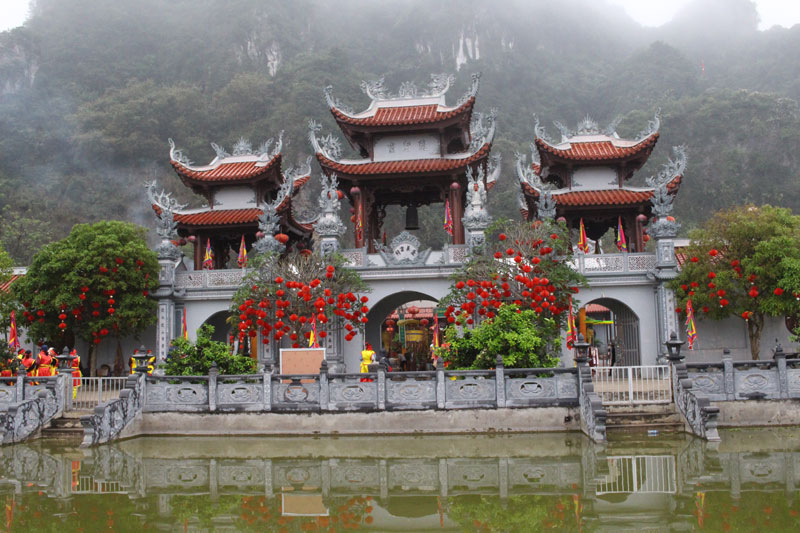
(HBO) - Cao Phong district aims to 2025, tourism becomes a key economic sector of the district. To achieve this goal, the district attaches special importance to developing tourism in association with preserving and promoting the cultural identity.

Bong Lai
Temple, Area 3, Cao Phong town is attractive destination of the district.
Coming to Cao Phong, tourists not only
experience and explore charming scenery but also study and understand the
unique culture of Muong people. Muong Giang Mo village (Binh Thanh commune) is
the ideal place for source tours, community culture exploration. Giang Mo village
has more than 100 stilt houses.
Cao Phong district is famous for its
historical-cultural relics associated with major festivals such as: Bo Temple
Festival (Thung Nai commune); Khanh Temple festival (Yen Thuong commune); Quen
Ang Pagoda festival (Tan Phong commune);
Thuong Bong Lai temple festival (Cao Phong town)...
Tourism development associated with preserving
and promoting the cultural identity has contributed to attracting a lot of
tourists to visit and explore Cao Phong district. In the first quarter of 2019,
the whole district received 210,217 visitors; revenue from tourism reached VND
15.1 billion.
In the coming time, Cao Phong district will
continue to exploit unique values in customs, culture and cultural and
historical relics to develop tourism. The Party Committee and local authorities
are determined to achieve the target by 2025, tourism becomes a key economic
sector of the district. Tourism will contribute to economic restructuring,
sustainable poverty reduction, job creation, increased revenue for the budget
and a driving force for promoting other economic sectors to develop.
Until now, Sung village in Cao Son commune, Da Bac district remains the only Dao ethnic community in Hoa Binh province to develop a community-based tourism model. Beyond its untouched natural landscapes, cultural identity serves as the cornerstone attraction for visitors.
Alongside the diverse cultural identities of the Kinh, Muong, Tay, Thai, Dao, and Mong ethnic people, Hoa Binh province is also renowned as the "capital" of the northwestern Vietnamese cuisine, offering unique and distinctive dishes. At festivals, during Lunar New Year (Tet), or on significant family or community occasions, special dishes are prepared, leaving a lasting impression on visitors.
A Phong Linh (Yellow Tabebuia) flower garden in Thang village, Thach Yen commune, Cao Phong district is currently in full bloom, drawing a large number of visitors.
Community-based tourism has been thriving in Pa Co commune, Mai Chau district thanks to advantages in natural landscape and cultural identity.
Doan Ket commune of Yen Thuy district has recently held a ceremony to receive a certificate recognising Ta communal house as a provincial-level historical and cultural relic site.
In Lac Thuy district, the fertile alluvial land along the Boi River is now home to lush green mulberry gardens, marking the emergence of a new agricultural industry - mulberry cultivation and silkworm farming.



